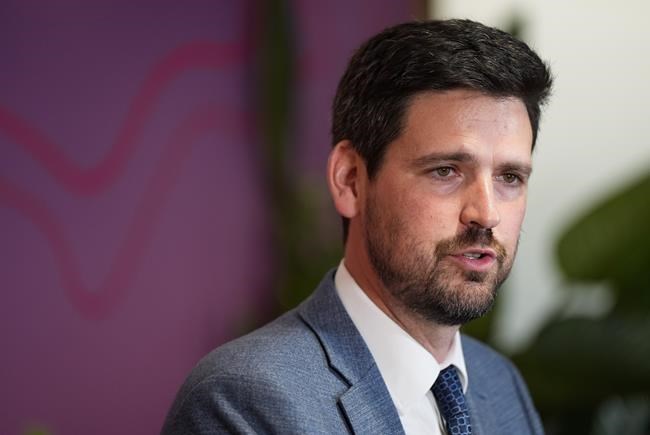OTTAWA — Spouses, children and parents of recent immigrants will be able to join their loved ones in Canada more quickly as the government shifts to a new system to approve family reunification applications, Immigration Minister Sean Fraser announced Friday.
Family members seeking permanent residency status in Canada can apply for a temporary visitor's visa to join their sponsor while they wait for their application to be approved.
However those types of visas are often denied because of concerns the applicants are unlikely to leave once it expires.
The new system uses advanced analytics to identify people who have a permanent residency application in the system and approve their visa to visit Canada more quickly.
The minister says he hopes the turnaround time will now be as short as 30 days.
"This means that family members will be able to travel to Canada more quickly and be with their loved ones sooner than was previously the case," Fraser said at a press conference in Vancouver Friday.
The new system will sift through the person's application and determine how likely it is that they will be granted permanent residency. Those with a high likelihood will be put in a category that fast tracks their temporary visa.
So far, the approval rate for applications under the new system is higher than 98 per cent, he said.
The announcement follows new instructions issued to immigration staff in April for dealing with applications from people who want to come to Canada while they apply for permanent residency. The new instructions reinforced the idea that the two applications are complementary, not contradictory.
"It's a shake up for sure," said immigration lawyer Will Tao after the minister's announcement Friday. "I think it's a good move, in many respects"
The increased use of advanced analytics has raised some concern though about the types of historical data being used to inform the machine-based decision making, and whether it could discriminate against or disadvantage some families based on where they're from or other characteristics, he said.
"I think that's something needs to be dug into a little bit more about this idea that it applies the same to everybody, because I think in immigration we know that's not the case, historically and data wise," Tao said.
"There are always discrepancies."
Fraser told the press conference he wanted to "put to bed" any fears about discriminatory results, and that the department has seen "massive improvements" in approval rates.
"It's led to better outcomes across the board, regardless of who might be applying," he said.
Decisions are always made by department staff, Fraser said, and it's not possible for an artificial intelligence system to give or deny final approval.
Fraser also announced Friday that spouses and dependent children with a temporary visa will be given open work permits, regardless of whether they apply before or after they arrive in Canada.
That means spouses won't have to wait to start working after they arrive in Canada.
"We know it's critical that they're able to support themselves and their families as soon as possible," Fraser said.
This report by The Canadian Press was first published May 26, 2023.
Laura Osman, The Canadian Press





